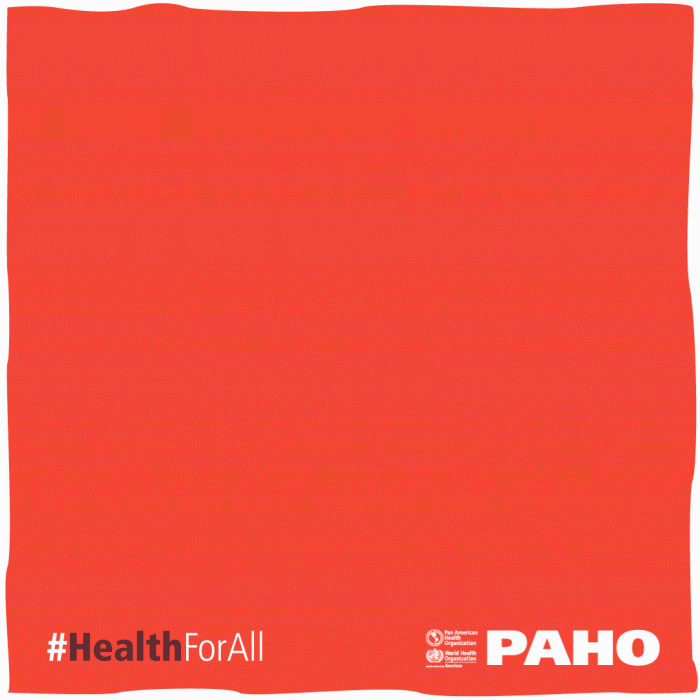
Join us on Tuesday, March 19, 2024 at 11:30 a.m. (Washington D.C. or EST) at the webinar on Public Policies to Prevent Childhood Obesity from a Food Systems Approach, an event that seeks to incorporate the health and nutrition approach as a central axis in the transformation of food systems to prevent overweight and obesity.
The event aims to highlight public policies that restrict the advertising of unhealthy foods, establish nutritional quality standards in educational and public institutions, encourage the production and distribution of fresh foods at the local level, and apply fiscal policies that discourage the consumption of unhealthy foods, and encourage the consumption of healthy, sustainably produced foods and guarantee equitable access to healthy foods in disadvantaged communities.
Live broadcast
Live broadcast in English.
Live broadcast in the floor audio.
Agenda
11:30 a.m. Opening remarks
Leo Nederveen, PAHO and Maaike Arts, UNICEF.
11:40 a.m. All forms of malnutrition panorama with focus in childhood overweight and obesity in LAC, drivers and health consequences
Paula Veliz, UNICEF
11:50 a.m. Health impact from food systems
Lesly Vejar, PAHO
12:00 p.m. Environmental Implications from breast milk substitutes
Julie Smith, Australia National University
12:10 p.m. Life story - Retail - Peru (VIDEO)
12:15 p.m. Food systems impact in the children: Barriers and opportunities to change food systems
Michelle Alvarez, UNICEF
12:25 p.m. Life story – Urban environment - Chile (VIDEO)
12:30 p.m. Public policies recommendations to prevent overweight and obesity
Leo Nederveen, PAHO
12:40 p.m. School canteens – Julian’s lunch - Mexico (VIDEO)
12:45 p.m. Approval of policies to prevent overweight and obesity in Mexico
Fiorella Espinosa, UNICEF México
12:55 p.m. Food provision in schools - Brazil
Ana Carolina Silva e Souza - Ministry of Education, Brazil
1:05 p.m. Q&A
1:15 p.m. Closure and acknowledgments
Context
Overweight and obesity represent one of the most pressing public health challenges today. The absence of policies and regulatory frameworks favors the production, promotion, and sale of highly harmful products for health, widening the gap of inequality, and contributing to environmental degradation. Evidence-based strategies and regulatory frameworks are necessary to achieve transformation in food systems and ensure the right to healthy eating, especially among the most vulnerable populations.
Aware of this challenge, the Pan American Health Organization (PAHO) and the United Nations Children's Fund (UNICEF) joined forces to organize a webinar as part of the work plan of the Food Systems UN Task Force. This Task Force emerged following the UN Food Systems Summit in September 2021, which highlighted the need to transform food systems to address challenges such as hunger, climate change, and poverty.
Time in other cities
- 8:30 a.m. - Los Angeles.
- 9:30 a.m. - Belmopan, Guatemala City, Mexico City, Managua, San José (CR), San Salvador, Tegucigalpa.
- 10.30 a.m. - Bogotá, Panama City, Kingston, Lima, Quito.
- 11:30 a.m. - Washington D.C., La Habana, Port-au-Prince, Bridgetown, Caracas, Georgetown, La Paz, Nassau, Port Spain, San Juan.
- 12:30 p.m. - Asunción, Buenos Aires, Brasilia, Montevideo, Paramaribo, Santiago de Chile.
- 4:30 p.m. - Geneva, Madrid.
For other cities, check the time in the following link.
Related links
Obesity Prevention
PAHO supports the use of WHO-recommended interventions to reduce the obesity epidemic, including WHO's "Best-Buys" related to obesity prevention, the WHO Global Strategy on Diet, Physical Activity and Health and the Global Action Plan on Physical Activity 2018-2030: More Active People for a Healthier World.
To support the countries of the Region, PAHO continues to provide technical guidance and cooperation to programs and policies and to facilitate collaboration among countries.
PAHO is also working with countries of the Americas in the implementation of the World Health Organization (WHO) Acceleration Plan to STOP Obesity, endorsed during the 75th World Health Assembly in 2022. The aim of the plan is to accelerate progress towards reducing obesity, with a focus on high-burden countries.


